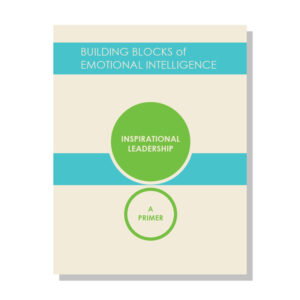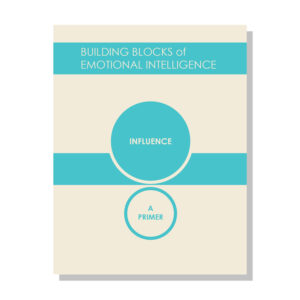

The Power of Vulnerability in Leadership
October 9, 2018 Time to read: 4 min.Sarah is a young, talented leader who rose quickly to an executive role. As a part of her professional development, she went through a 360 assessment and worked with a coach. In her feedback, she was surprised to discover that her colleagues and direct reports perceived her as distant and aloof. They struggled to connect with her, and consequently didn’t trust her. This feedback was shocking and upsetting for Sarah. She resisted it as “just not true.”
However, within her coaching relationship, Sarah uncovered a mindset which didn’t serve her well, and had, until now, been a blind spot. The mindset: being more authentic and vulnerable is bad. It developed long ago in response to a string of childhood tragedies, including her Dad’s death when she was in second grade and her Mom’s breast cancer diagnosis around the same time. Since Sarah’s mom was consumed by her husband’s death and facing her own mortality, she was not emotionally available to Sarah and her siblings. Being the oldest, Sarah became the surrogate parent to her siblings. And as she believed she needed to hold it together for the family, she never shared the depth of her grief and loss with anyone. This set her on a course to become the stoic, high achieving leader she is today. Sadly though, by walling off a part of herself, she struggled to build trusting relationships and was reluctant to let others into her world. Indeed, this mindset and its impact surfaced when she was forced to consider how her self-perception vastly differed from how others perceived her.
While she believed being objective, unemotional, and aloof made her appear as a more competent leader, just the opposite was true. Her unwillingness to be real and connect with others held her back from becoming the relatable, engaging leader others would be inspired to work with and for. And unsurprisingly, the teams she led all struggled with interpersonal trust.
Sarah’s story illustrates a commonly held mindset not discussed enough in leadership circles (and in life)–that we should avoid being vulnerable. Like Sarah, many of us think we need to maintain the veneer of “having it all together.” If you share this mindset, consider these two points.
First, a willingness to open up about our humanity and imperfections with colleagues, direct reports, and even our bosses, humanizes us and attracts respect. And this learnable skill often correlates with exceptional teamwork and results. If jumping into this seems way too daunting, consider sharing with a trusted colleague first. Pushing through the initial anxiety of having the first few conversations pays off for most. By letting others in on both your imperfections and your discomfort with sharing them, you will experience a decompressing effect whereby you feel lighter and more confident.
Second, by sharing your real self with someone, you can connect more easily with others. Brené Brown, noted researcher in social connection, has increased understanding of the role of vulnerability in relationship-building. Vulnerability doesn’t mean being weak. The best leaders have learned it indicates the courage to be your real self. It means replacing “professional aloofness and an air of having it all together” with the ability to experience ambiguity and model Emotional Self-Awareness. Opportunities for vulnerability present themselves to leaders all the time. For example, admitting you don’t know the answer to a question, asking for help, and offering stories of times you made mistakes. Openness builds trust and deepens relationships, which makes for great performance, both individually and organizationally. Research shows that when people intentionally build social ties at work, their performance improves.
After Sarah recognized her fear of vulnerability, and acted to challenge this mindset, her progress and motivation to become a better leader exploded. As she discovered first-hand, there’s power in expressing our struggles and accepting that we all have blind spots. Sarah’s new behavior was contagious. She observed her colleagues on the executive team starting to openly acknowledge others’ good ideas and perspectives in meetings rather than staying entrenched in their original positions. Sarah had, in fact, started her own movement!
Try this:
Teams need to connect and collaborate to become high-performing and successful. However, when your team includes a diverse mix of cultures and generations, achieving this level of cohesion can be challenging.
How can you bring people together? Try this exercise to help your team build deeper relationships.
-
- At your next team meeting, ask everyone to find one partner and answer the following three questions in just 60 seconds each.
-
- Where did you grow up?
-
- How many kids are in your family and where do you fall in the order?
- What current challenge are you facing?
-
- At your next team meeting, ask everyone to find one partner and answer the following three questions in just 60 seconds each.
-
- Have people share with the larger group what the experience was like for them–both as the listener and speaker.
- If you want to take it a step further, you can exemplify openness and vulnerability by sharing your responses to the questions with the entire team.
The takeaway: Openness builds trust and deepens relationships, which makes for great performance, both individually and organizationally. Research shows that when people intentionally build social ties at work, their performance improves.
Recommended Resources:

For further reading, our series of primers focuses on the twelve Emotional and Social Intelligence Leadership Competencies, which include Emotional Self-Awareness, Adaptability, and Empathy.
The primers are written by Daniel Goleman and Richard Boyatzis, co-creators of the Emotional and Social Intelligence Leadership Competency Model, along with a range of colleagues, thought-leaders, researchers, and leaders with expertise in the various competencies. Explore the full list of primers by topic, or get the complete collection!







